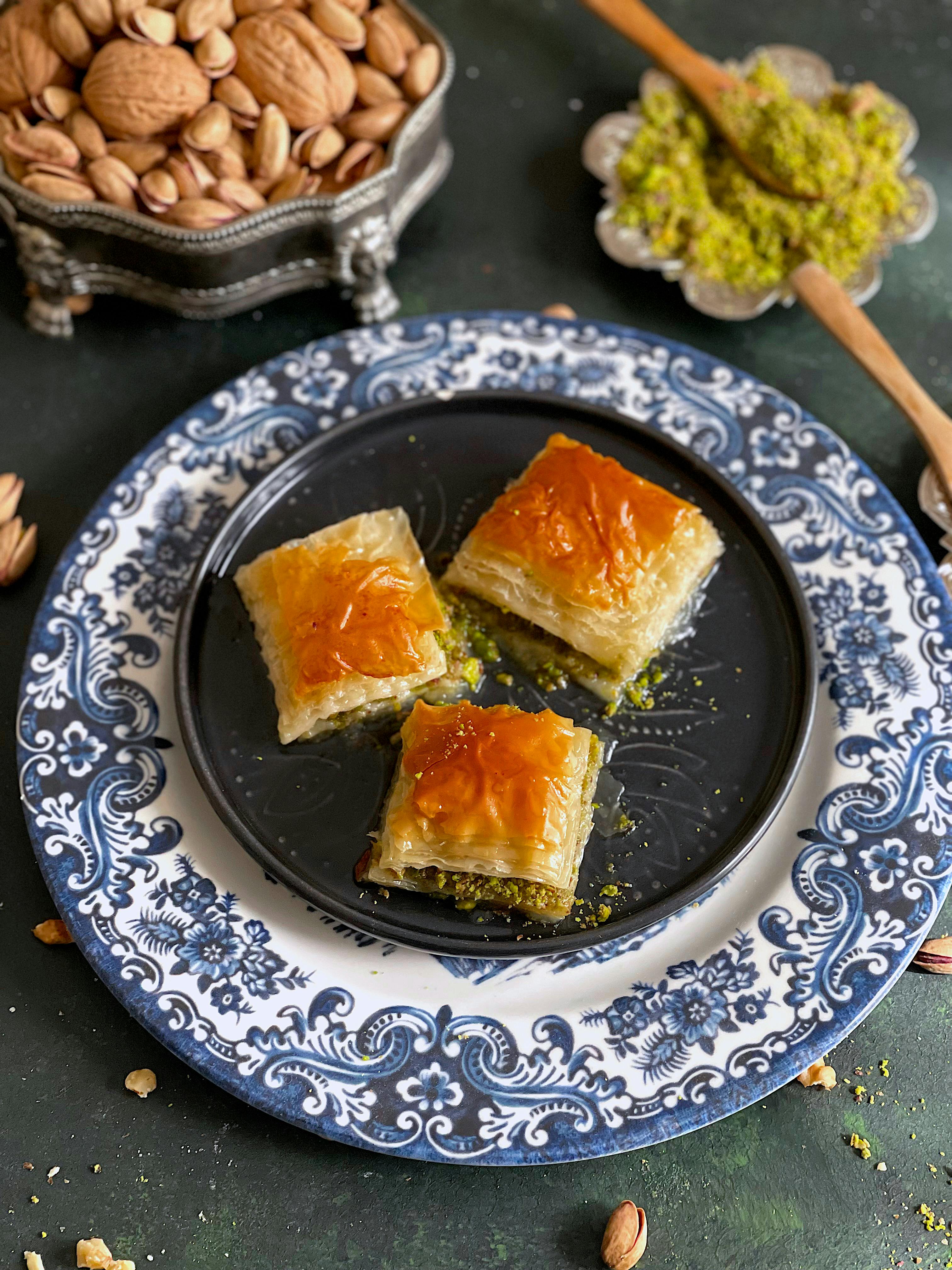The Cultural Significance of Lebanese Sweets in Gift-Giving Traditions
In Lebanon, sweets symbolise love and joy. They create connections and strengthen relationships through culinary traditions. Treats like Baklava and Ma’amoul are more than just desserts; they carry deep cultural significance in gift-giving practices. These delightful confections often mark significant milestones, celebrations, and acts of hospitality. For residents of the UAE, particularly in Dubai, exploring these traditional delights leads them to Arabic sweets shops. These shops offer cultural treasures that reflect the importance of sweets in Lebanese culture. Their vibrant atmosphere invites customers to experience a taste of home.

Source: Freepik
Traditions and Customs of Lebanese Hospitality
Lebanese hospitality is famous for its warmth and generosity. These traits are deeply rooted in the culture. When welcoming guests into a Lebanese home, offering traditional sweets goes beyond a simple gesture. It signifies honour, respect, and gratitude. The type of sweets presented varies by occasion. For grand celebrations, people choose lavish and decadent treats. For casual gatherings, lighter options are preferred. This rich tradition continues among Lebanese expatriates in the UAE. They frequently search for the best Baklava in Dubai to recreate the beloved hospitality of their homeland. Sharing sweets reinforces social bonds and celebrates community joy.

Source: Freepik
Gift-Giving Etiquette in the Middle East
In Middle Eastern cultures, gift-giving is steeped in respect and affection. Unlike some Western traditions that often focus on material gifts, Lebanese culture values food—especially sweets—as symbols of goodwill. Presenting a beautifully packaged box of sweets as gifts for Lebanon people during visits or special occasions strengthens bonds. It also conveys unity and respect among families and friends. In the UAE, Arabic sweets shops play a crucial role in maintaining this tradition. They ensure that thoughtful, edible gifts remain popular among locals and expatriates. The presentation of these sweets often carries significance, showcasing the giver’s care and thoughtfulness.

Source: Shutterstock
Influence of Various Cultures on Lebanese Confectionery
Lebanese confectionery reflects the country’s rich history and diverse cultural influences. The Ottomans, for example, introduced Baklava. This sweet has since become a staple in Lebanese cuisine. Many families adapt it with local ingredients, such as pistachios and rose water. French culinary techniques have also influenced the refinement and presentation of Lebanese sweets in gift. These methods transform simple pastries into intricate works of art. This fusion of culinary heritage creates unique flavours and textures that define Lebanese sweets today. The global appreciation for these confections is evident in places like the UAE. Arabic sweets shops there offer a delightful mix of traditional and modern varieties.

Source: Freepik
Cultural Significance of Gifting Sweets in Lebanon
In Lebanon, gifting Arabic sweets embodies joy, goodwill, and community. Whether for weddings, Eid celebrations, or casual visits to friends, presenting sweets conveys respect and heartfelt blessings. During Eid, families often share Maamoul, which is filled with dates or nuts. This act serves as a token of happiness and good fortune. The cherished tradition of gifting sweets thrives among Lebanese communities in the UAE. Sharing sweets during these occasions fosters belonging and a shared cultural identity.

Source: Freepik
Celebrations with Different Types of Sweets
Lebanese sweets hold vital roles in various celebrations. Each variety symbolizes unique aspects of joy and community. For instance, during weddings, elaborate trays of Baklava and Nammoura are presented. These signify prosperity and happiness for the newlyweds. Similarly, during religious holidays like Eid al-Fitr, families share Ma’amoul. This commemorates the end of Ramadan and fosters unity among loved ones. Knafeh, with its rich cheese filling and syrupy sweetness, often graces family gatherings and breakfast tables. It symbolises indulgence and togetherness. This sweet tradition continues in the UAE, where Arabic sweets shops offer a wide selection of these delicacies. They cater to celebrants from diverse cultural backgrounds.
Baklava: The King of Arabic Sweets
Baklava, with its flaky pastry and crunchy nuts, is one of the most iconic sweets in the Middle East. Its origins trace back to the Ottoman Empire. However, Lebanon has embraced Baklava wholeheartedly. It has become central to its gift-giving traditions. Gifting Baklava symbolises generosity and celebration. This is especially true during weddings, family gatherings, and holidays. The intricate process of making Baklava has been passed down through generations. Each family adds its own unique twist to Baklava sweets Dubai. This shared practice preserves tradition and creates bonding opportunities among family members.

Source: Freepik
Maamoul: A Sweet with Religious Significance
Maamoul is a shortbread pastry filled with dates, walnuts, or pistachios. Families traditionally enjoy it during religious holidays like Eid and Easter. Its significance goes beyond flavour; it serves as a symbol of prosperity and celebration. Families in Lebanon often gather to prepare Maamoul. This turns the process into a shared ritual that strengthens family ties. Gifting Maamoul extends blessings and happiness to others. It is common to see large quantities of these pastries distributed among neighbours and friends during festive occasions.

Source: Freepik
Knafeh: A Symbol of Indulgence and Luxury
Knafeh features a golden, cheese-filled pastry soaked in syrup and topped with crushed pistachios. It epitomizes indulgence and luxury. Knafeh is often served during grand family gatherings, weddings, and special breakfasts. Its rich texture and delightful flavour make it a popular choice for gifting. Knafeh symbolizes abundance and joy. The presentation often showcases artistic flair, adding to its appeal during celebrations.

Source: Freepik
Lebanese sweets are much more than just delicious treats. They serve as cultural symbols of tradition, community, and connection. Whether it’s Baklava, Ma’amoul, or Knafeh, gifting these sweets is a timeless way to express appreciation. It also allows individuals to share blessings and honour Lebanese customs. In the UAE, this cherished tradition continues to flourish. Many seek out the finest Arabic sweets to gift loved ones, both near and far. The act of giving these confections strengthens relationships. It fosters a sense of unity and cultural pride. As Lebanese communities grow and evolve, the significance of these sweets in gift-giving remains a beloved part of their heritage.






